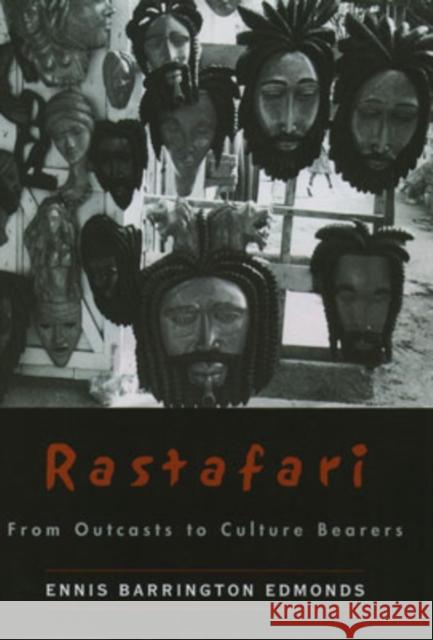Rastafari: From Outcasts to Culture Bearers » książka
Rastafari: From Outcasts to Culture Bearers
ISBN-13: 9780195133769 / Angielski / Twarda / 2002 / 208 str.
Since its emergence from the ghettoes of West Kingston, Jamaica in the 1930s, the Rastafarian Movement has been transformed from an obscure group of outcasts to a vibrant movement that has not only become firmly entrenched in Jamaican society, but has successfully expanded beyond the Caribbean to North America, the British Isles, and Africa. Ennis Barrington Edmonds provides a compelling portrait of the Rastafarian phenomenon and chronicles how a once-obscure group, much maligned and persecuted, became a dominant cultural force in the world today.
Edmonds charts the evolution of the relationship between Rastafari and the wider Jamaican society. In the early years of the movement, there was outright confrontation and repression, as Rastas were seen as a threat to Jamaican society. This evolved into a grudging tolerance and eventually an aggressive appropriation of Rastafarian symbols in the 1970s and 1980s--as evidenced by the veritable coronation of reggae artist Bob Marley--resulting in the "culture tourism" of the late twentieth century. Edmonds focuses in particular on the internal development of Rastafarianism as a social movement, with its network of "houses" (small, informal groups that form around leading Rastas) and "mansions" (larger, more communal associations), to track the process of this strikingly successful integration. He further demonstrates how Rastafarian artistic creativity, especially in fashioning the music and message of reggae, was a significant factor in the transition of Rastas from the status of outcasts to the position of culture bearers.
Rastafari presents an intimate account of a unique movement, which over the course of several decades had entrenched itself in Jamaican society and has become the international cultural and political force it is today.











